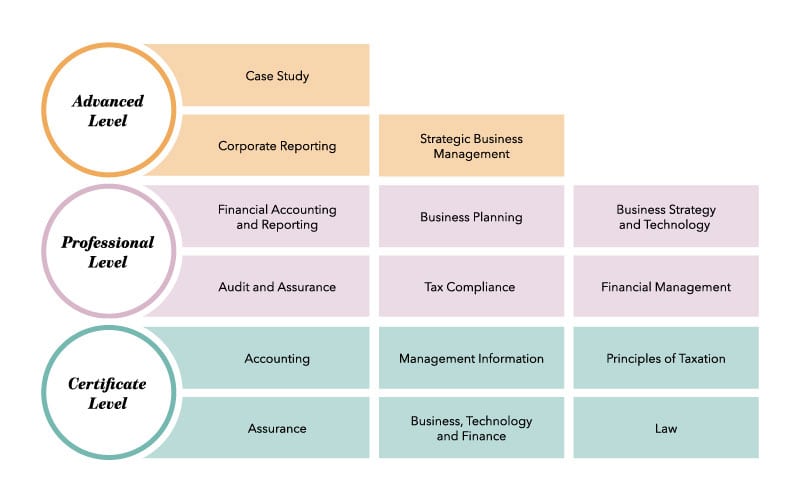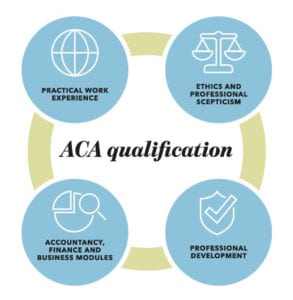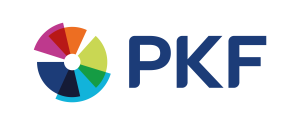To become an ICAEW Chartered Accountant, you need to train for and successfully complete the four components of the ACA. ACA training is done on-the-job, so you will be able to earn a salary while studying for a globally-recognised qualification. This article gives an overview of the qualification and how to become a chartered accountant.
Successful ICAEW Chartered Accountants need the right mix of knowledge, skills and on-the-job experience. To follow in the footsteps of our members and become an ICAEW Chartered Accountant, you will need to complete our globally-recognised ACA qualification. The ACA has four integrated components that have been carefully designed to build on each other. This means that you will develop the skills and expertise you need as you progress through your training.

Professional development
Professional development is an essential part of ACA training. It prepares you to successfully handle a variety of situations that you will come across throughout your career. The skills framework is made up of seven key areas, each containing seven or eight steps that represent a particular skill needed to be a successful business professional.
Ethics and professional scepticism
Ethics is more than just knowing the rules around confidentiality, integrity and objectivity. It is about being able to identify an ethical dilemma, understand the impact and behave appropriately. Ethics is an essential part of the accountancy profession. We integrate ethics throughout the ACA qualification to develop your ethical capabilities – so you’ll always know how to make the right decision, even when no one’s looking!
3-5 years’ practical work experience
Practical work experience is a key component of ACA training. You will need to gain and show evidence of at least 450 days’ work experience, which must be completed as part of a training agreement with one of our 5,000 authorised employers around the world. The agreement is separate to your employment contract and details the commitment both you and your employer have to you achieving the ACA qualification.
While you can start the ACA qualification on your own, securing an ACA training agreement with an authorised employer will mean you receive the highest standard of training and support from the start. Your employer will guide you through your ACA training and you’ll benefit from six-monthly reviews. These regular reviews will give you the chance to discuss your progress through all components of ACA training with your employer. Once completed, you will record your practical experience in your online training file.
Accountancy, finance and business modules
The ACA modules cover a wide range of subjects, to enable you to develop a broad understanding across accountancy, finance and business.
They progress over three levels and are designed to complement the practical experience, professional development and ethical learning you gain throughout your ACA training. This means that you’ll be able to apply theory in the workplace right from the start.
If you are in an ACA training agreement your employer will guide you on the pace and order that you complete the ACA modules, and discuss professional tuition with you.
You can complete the ACA modules in any order but you will typically complete the Certificate Level before moving onto the Professional Level. You will then move onto the Advanced Level. To support you in applying your knowledge in exams, there are alternative modules for Business Planning, Financial Accounting & Reporting and Corporate Reporting.
When you start an ACA training agreement, your employer will guide you on the modules that are right for you. If you start the ACA independently, you should consider your future ambitions when selecting which modules to sit.
Don’t forget! If you are studying for, or have completed an accountancy, finance or business-related undergraduate degree, a master’s or professional qualification, you may be eligible to apply for exam credits towards the ACA qualification. Visit icaew.com/cpl to find out more.
Certificate Level
- Six modules.
- An introduction to accountancy, finance and business.
- Each has a 1.5 hour computer-based exam
- Exams can be sat at any time.
- Can be taken in any order.
- Available as a stand-alone qualification – ICAEW Certificate in Finance, Accounting and Business (ICAEW CFAB).
Professional Level
- Six modules.
- Learn to apply technical knowledge in real-life scenarios.
- Each has a 2.5-3 hour exam.
- Exams can be sat in March, June, September and December.
- Can be taken in any order.
- Alternative modules available for Business Planning and Financial Accounting and Reporting.
Advanced Level
- Three modules.
- Strategic decision making at a senior level.
- Real-life scenarios with increased complexity.
- Each has a 3-4 hour written exam.
- Exams can be sat in July and November.
- Alternative modules available for Corporate Reporting.
This is a snapshot of what training for our chartered accountancy qualification will involve. Visit our website icaew.com/careers to find out more about the ACA qualification and how it will help you develop into a business professional.
________________________________________________________________________________
The Associate Chartered Accountant (ACA) qualification is the one taken by most graduates who want to get into chartered accountancy. The ACA can also be taken after completing your A-levels on the ICAEW School Leaver Programme. This qualification requires aspiring accountants to complete at least three years on-the-job training while passing a series of exams. ACA qualified accountants tend to have more opportunities to work in the ‘Big Four’ which pays well.






